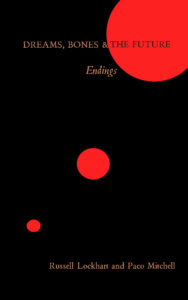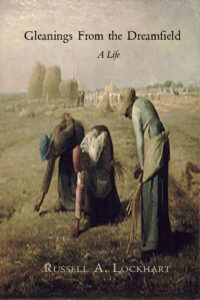October
30
Things Seen in a Dream Scene
Clustered they were—here and there
Yes, remnants of humans remained
Living on mountains of human remains
No one knows what lies beneath
The alluvial deserting and swamping
The constant rain washes everything
Thirst is quenched but hunger is not
So very hot the wet rises steaming
But the birds do not notice, they are flying
While all the animals follow them northward
Humans not following, they’ve forgotten how
No children are seen, no babies' cries are heard
There is talk of what might have been, what could be
Forgotten now that humans were gatherers and hunters
Not remembering humans are animals, are mammals
Not remembering anything useful now, not even dreams
October
1
Hi all,
If you have not yet started to follow developments at the Fex & Coo website,
now is the time. Not only are there important blog posts and commentaries,
but the first installment of The Deathling Crown Lottery has just been posted.
This is the second novel written by Paco and Russ in their round-robin fashion.
Please visit and register at fexandcoo.website
Enjoy!
Russ
September
24
As you know, Fex & Coo (fexandcoo.website) began with my mulling on Goethe's admonition
to look at what one sees, and to find the story there. Looking resulted in a flow of story. This
post illustrates another example conveyed in a TED talk by Wendy MacNaughton where one
draws what one sees but without seeing what one is drawing. In this case, one may be seeing
a face, but the drawing becomes another way of "looking" at what one sees. This is a very useful
example, and I suggest you try it.
Here is the link:
September
17
In a report of recent research, Van Savage and Geoffrey West
explored the long unresolved questions of why do we need sleep.
a new mathematical theory supported by the evidence unlocks
at least some of the mysteries of why we need to sleep.
Here is the link:
https://aeon.co/essays/a-quantitative-theory-unlocks-the-mysteries-of-why-we-sleep?utm_source=Aeon+Newsletter&utm_campaign=dc11f94c0f-EMAIL_CAMPAIGN_2021_09_13_06_44&utm_medium=email&utm_term=0_411a82e59d-dc11f94c0f-70343981
September
2
The first draft of the cover for Dreams, Bones & the Future: Endings

August
27
Notes from the Horizon
While wandering about…
The insulation against sorrow wears thin.
Breathe in, out.
Repeat, while you can.
Yes, I know.
There are no boundaries.
No limits.
No constraints on human folly.
Nothing to stop the seduction of denial.
Or the self-satisfying freedom loosed by the power of lying.
Nothing at all to end the spread of the all-consuming alternate reality virus.
Except—
It’s brewing now.
Not yet visible.
Not yet knowable.
Even in nightmares.
It is coming, nonetheless.
Rue and worse will lie in its wake.
It will break over everyone and everything.
Taking our future who knows where.
August
25
Russell’s Sentences
Doing What a Dream Demands
The very idea would strike most people as silly, ludicrous, nonsensical.
I do not take demands from anyone easily.
Well, maybe from my wife, Frankie.
But from a dream?
Actually, I do so quite often.
But not easily.
Not just demands, but suggestions, hints of direction, and other such.
Several plates are laden with dream tasks.
But the dream was clear.
Write in single sentences, no gathering of sentences into paragraphs.
Reminding me of a literature professor who declared that a close reading of any text required rewriting the text as single sentences.
Something akin to not seeing the trees for the forest, in a reversal he was known for.
Don’t be surprised then to see me write something in lonesome sentences.
August
20
Talking About “Dreams, Bones & the Future: A Dialogue”
Bonnie Bright
in Conversation with
Authors Russell Lockhart and Paco Mitchell
Recently, a new book arrived in our midst, emerging from the depths into our awareness and carrying with it ideas painted in language that births images that create a sort of magical effect on the reader. Indeed, the manuscript is “magical”—a dialogue between two astounding writers who are also profoundly cognizant of and driven by the power of dreams and the images they contain. In this conversation the writers, Russell Lockhart and Paco Mitchell open up to Bonnie Bright about Dreams, Bones & the Future: A Dialogue
BB: Great title! Where did it come from?
Get the rest of this interview at owlandheronpress.website/bbinterview.pdf

